Milton Chen on Deeper Learning for ELLs Transcript
+++ 00:00:07 +++
Card:
Asia Society
Expert commentary by:
Milton Chen
Milton Chen: I'm Milton Chen. I'm a senior fellow at the George Lucas Educational Foundation.
Lower Third:
Milton Chen
Senior Fellow,
George Lucas Educational Foundation
+++ 00:00:11 +++
Milton Chen: My entire career has been around educational innovation. I learned by doing formative research with preschoolers, that even our youngest kids could learn things earlier and faster than we thought, if they're given the right experiences. But these schools are taking students who come in from widely varying backgrounds, who often have, shall we say, deficits or disadvantages from their families, first of all, coming from an immigrant population where English
+++ 00:00:43 +++
is not the native language. In these schools, that's seen as an opportunity, that's seen as a strength, the fact that you know another language, that you have that as a language in your home, to come together and meet with other students from other backgrounds. So I like the fact that they take a positive approach to each learner, and they also encourage collaboration therefore, amongst the students. That's something that you want to see in a modern, 21st century, common core enabled classroom. You want to see students working together to create something bigger than any of them could do on their own, and to learn from each other.
+++ 00:01:14 +++
You see students from four or five different countries around a table, talking in English, also being able to communicate with others in their classroom in their own native language. That's another thing we've learned from the research, that besides the teacher, there are many others in the classroom who offer resources for learning and they are their peers. The way in which peers explain concepts to each other can often be more powerful than what the teacher has just explained.
+++ 00:01:44 +++
Sometimes students understand things in different ways. They're more accepting of what a student will tell them, so I think the power of collaboration's very evident in these videos. Peer tutoring is a very powerful way of implementing the curriculum, whether it's project based learning or more activities based learning. But to have students really talk to each other, tutor each other, every student can be a teacher, can be a tutor in that classroom, and every student can also be a learner. So creating a much deeper well of knowledge within the classroom of what students bring to that classroom, what they're good at, what they're needing help with, I thought the peer to
+++ 00:02:20 +++
peer tutoring was a good example of how students can go deeper and learn about subjects and concepts in different ways. In the Internationals Network, we saw a very creative approach to English language learning. And what I saw there, with the peer tutoring, with the collaborative work, with the more authentic approach, was very much something that all schools should think about employing. When you think about it, every student in our schools is an English language learner. They may come in with English as their native language, but we want to take that language and make it richer,
+++ 00:02:54 +++
make it more eloquent, make it more academic across subject areas. So every student needs to learn the academic language of science, of mathematics, of history, of literature. So in the Internationals Network videos, all those practices that they were employing with kids who were still learning the basics of English could be adapted for every student. I very much liked their approach, and again, seeing students coming from so many different countries from around the world, seeing that as a strength. If you connect that to the modern workforce, these students, when they know
+++ 00:03:29 +++
their own native language, when they become fluent in English, when they know two and possibly three or more languages, they will be some of the very best candidates for the workforce. They will understand different perspectives, how to communicate across what were thought to be barriers of language and culture. But those students will be innovators and the team leaders of the future.
#### End of Chen_INTL.m4v ####
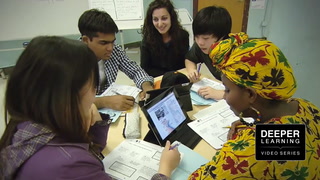
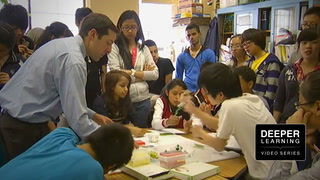
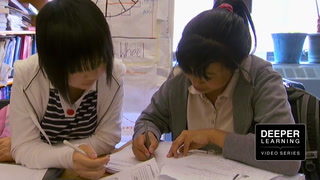
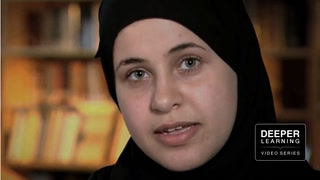
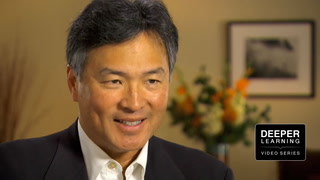








5 Comments
Ayda Patricia Segura Jun 26, 2016 2:46pm
Ava Allison Apr 26, 2015 11:30am
Karen Hill Jan 5, 2015 9:21am
Cody Spendlove Apr 17, 2014 5:09pm
Elsa Buckley Mar 28, 2014 7:34pm